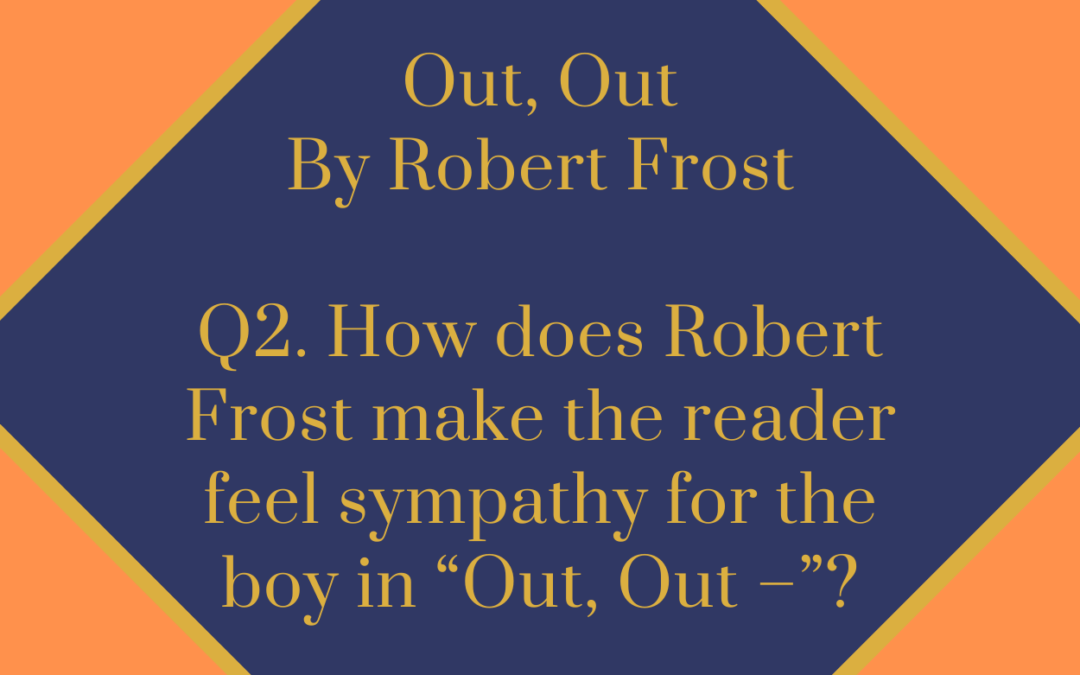Edexcel English IGCSE: Out, Out- by Robert Frost
Q2. How does Robert Frost make the reader feel sympathy for the boy in “Out, Out –”?
In your answer, you should think about:
- The description of the boy before the accident;
- How the other people respond to the accident;
- The death of the boy;
- The use of language.
You should refer closely to the passage to support your answer. You may use brief quotations.
Edexcel English IGCSE Model Essay by an Expert
The young boy in “Out, Out –” is the victim of a horrible accident. The reader feels sympathy for the boy before the accident, as he is too young to be doing such physical labour, and even after his death, which seems to go almost unnoticed.
The reader feels sorry for the boy before the accident, due to the adult nature of his work. The saw that the boy is using is presented as violent and horrible. The phrase “snarled and rattled” is repeated; the personification and onomatopoeia make the saw sound like a noisy, violent animal, which is inappropriate for a child. Frost references the boy’s desire for a break with a wistful and regretful tone, which reminds the reader that the accident could have been avoided. The poignant lines, “big boy / Doing a man’s work, though a child at heart”, further emphasise this message: here, the writer highlights the conflict between the child’s essential innocence and the way in which he has been forced to grow up before his time.
When the accident occurs, the reactions of others are somewhat surprising, and further evoke sympathy for the young victim. In the description of the accident itself, Frost does not refer to any other people; we might expect his fellow workers to rush to his aid, but instead the implication is that the boy struggled alone, with nobody answering his “appeal”. The boy cries out to his sister, begging her not to allow the doctor to cut off his hand. Frost does not refer to any words of comfort, implying that they were not given. Instead, immediately following this pathetic appeal is a short, abrupt sentence: “So.” This reflects the observers’ practical and seemingly uncaring attitude to the accident. The loneliness of the boy in his moment of need make him eminently pitiable.
The death of the boy is tragically quick. The description of his diminishing pulse – “Little – less – nothing!” – reflects his rapid decline into death. The language is simple, and the exclamation mark expresses the observers’ surprise that he could die quite so quickly. The reader, too, is drawn into this shock. Whilst the reader is likely to be upset by the death, the poet captures the observers’ reactions with colloquial expressions, making the death seem almost casual and unimportant: “that ended it” and “no more to build on there”. In the final line of the poem, where we might expect a reflection on the boy’s death, the others simply return to their work. This frustrates the reader and makes them pity the boy, whose death is frustratingly unmarked.
The boy’s vulnerability and innocence contrasts pitifully with the adult work he is doing, and the unemotional resignation of those he lives and works with. The reader pities him when he is alive, and regrets the apparent insignificance of his death.



